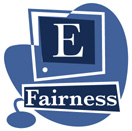Booksellers Urged to Join the Campaign for E-Fairness
 Over the past two months, there have been significant strides in the campaign for e-fairness that have thrust the issue into the media spotlight. To keep the issue on the minds of legislators, the American Booksellers Association is urging booksellers to write, fax, or e-mail their governors about this important issue.
Over the past two months, there have been significant strides in the campaign for e-fairness that have thrust the issue into the media spotlight. To keep the issue on the minds of legislators, the American Booksellers Association is urging booksellers to write, fax, or e-mail their governors about this important issue.
In April, booksellers scored a huge victory when the Internet Sales Tax provision was included in the final budget, and, though Amazon.com has said that on June 1 it would start collecting sales tax on purchases made by New York State residents, it is challenging the provision in court. And last week, the State of Texas comptroller launched an investigation into whether the presence of an Amazon.com-run distribution facility in the Dallas suburb of Irving means the online retailing giant has a physical presence in the state.
"All of these recent events have put the media spotlight on the issue of e-fairness like never before, and, at a time when states across the country are faced with significant budget deficits, it's important that we take advantage of this fact," said ABA COO Oren Teicher. "For that reason, we are asking that booksellers to contact their governors now and urge them to enforce their states' existing sales tax laws by requiring out-of-state retailers to collect and remit sales tax."
Without question, the issue of sales tax on online purchases has been the subject of many recent articles and editorials. For example, in an editorial in Wall Street Journal Portals, "Real World Needs 'Net' Taxes," reporter Lee Gomes wrote:
"[C]heer on New York and Texas as they chip away at the popular but grossly unfair advantage enjoyed by the Amazon.coms of the world. Online retailers don't have to collect sales tax on the items they sell if they're 'out of state' companies.
"Now, chances are you've ordered a tax-free book or two from Amazon, and enjoyed the experience. No one likes paying taxes. But this particular tax break is an especially pernicious one.
"For starters, by giving online businesses a permanent advantage over their bricks-and-mortar competitors, it helps those who need it least -- huge, profitable e-commerce companies -- at the expense of often-struggling local retailers."
To make booksellers' communication with their governors easier, ABA has prepared a template letter that can be adapted and sent. The association asks businesses that contact their governors to send a copy of the letter to ABA Public Policy Liaison David Grogan at dave@bookweb.org.
Additionally, earlier this month, Teicher e-mailed the booksellers in the 21 states with the largest projected budget deficits as reported by the National Conference of State Legislators, and asked those with any connections with a state legislator to arrange a meeting with the legislator regarding e-fairness.
"We will provide you with the necessary briefing, materials, and information -- and, in some cases, might be able to participate in the meeting with you," Teicher wrote. "Given the victory here in New York, which has brought about concrete and positive change for state businesses, it is imperative that we maintain our momentum and keep the pressure on." ABA is also in the process of preparing state-specific material to assist booksellers, available upon request.
Any bookseller who has a legislator in mind, or would like to discuss this issue further, is asked to contact ABA Public Policy Liaison David Grogan at (800) 637-0037, ext. 6662, or via e-mail at dave@bookweb.org. ABA public policy staff can help walk interested booksellers through the process of setting up a legislative meeting and answer any questions about ABA's Campaign for E-Fairness.